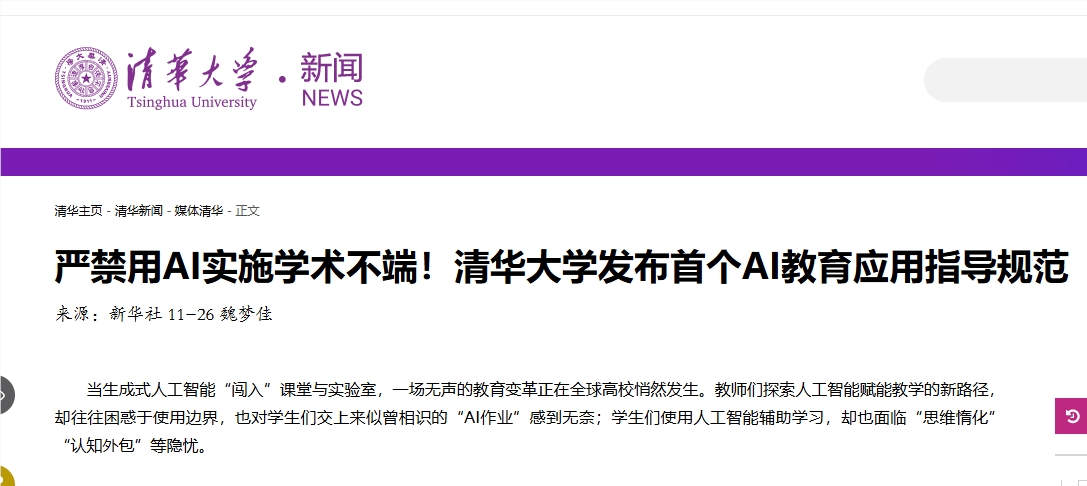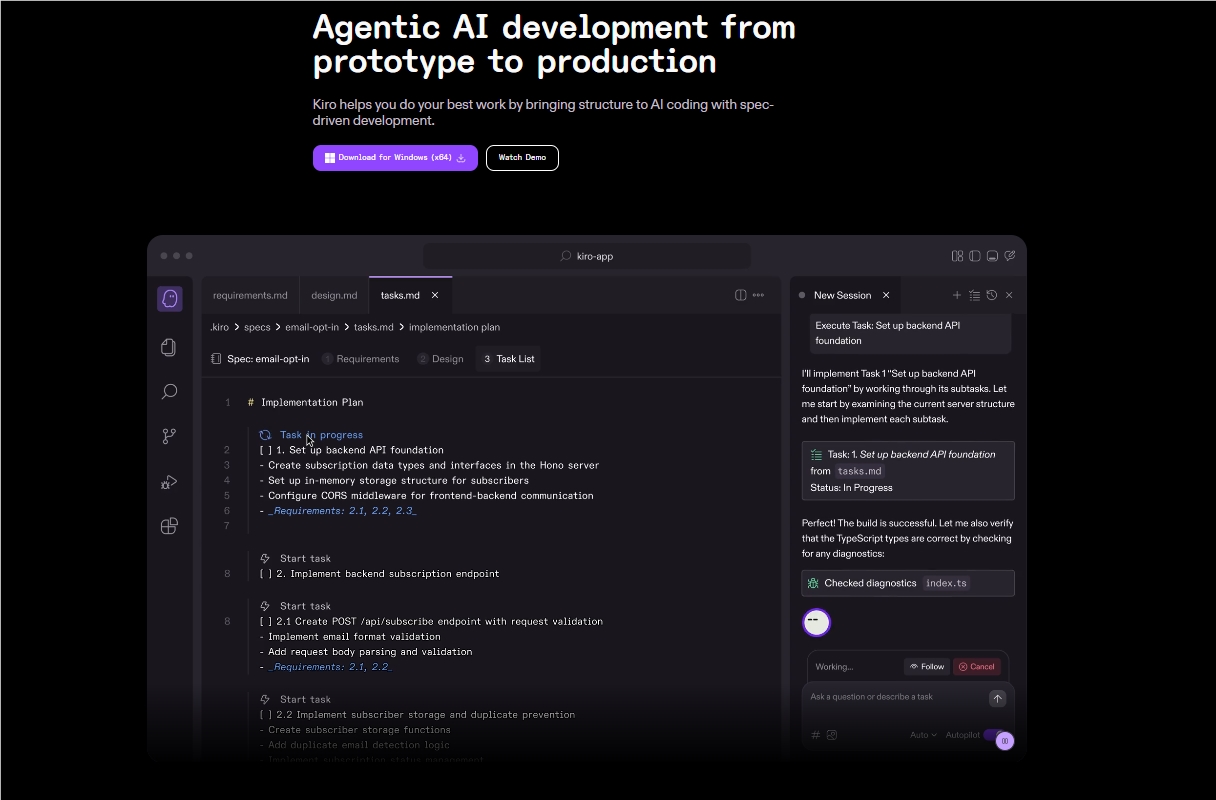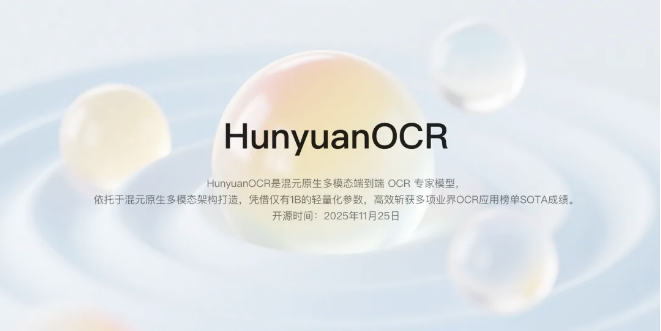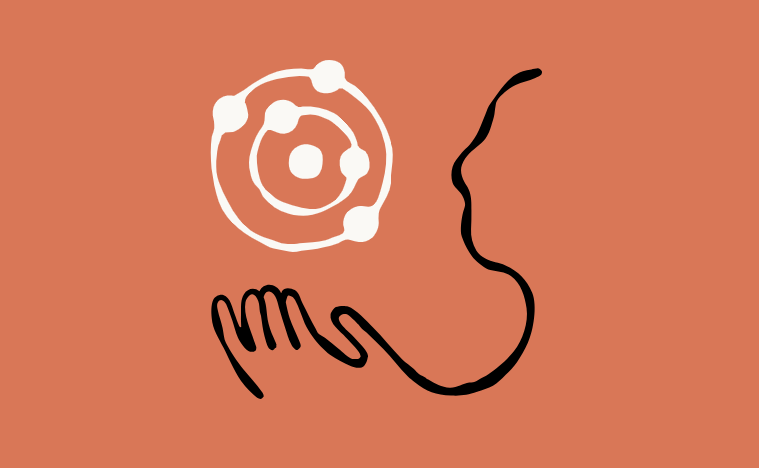Recently, Tsinghua University officially released the "Tsinghua University Guidelines for the Application of Artificial Intelligence in Education" (hereinafter referred to as the "Guidelines"), aiming to standardize the use of artificial intelligence on campus. This guideline systematically proposes overall and tiered guidance standards for the application of artificial intelligence for the first time, covering all core scenarios in teaching and academic research.

The "Guidelines" are divided into three parts: "General Provisions," "Teaching Section," and "Thesis and Practical Achievements Section." In the "General Provisions," the university clearly proposed an "active yet cautious" attitude and established five core principles: responsibility, compliance and integrity, data security, cautious thinking, and fairness and inclusiveness. Among them, "responsibility" emphasizes that artificial intelligence should be a supporting tool, while teachers and students are the main actors in learning and teaching; "compliance and integrity" requires teachers and students to disclose their use of AI to prevent academic misconduct; and "data security" prohibits the use of sensitive or unauthorized data to train AI models.
In the "Teaching Section," the university encourages teachers to independently decide the way of applying AI according to teaching objectives and requires that usage rules be clearly explained to students at the beginning of the course. For students, the guidelines emphasize that they can actively use artificial intelligence tools to assist in learning, provided that they follow the course regulations, but it is absolutely forbidden to submit text or code generated by AI directly as academic achievements.
Regarding graduate students, the "Thesis and Practical Achievements Section" specifically points out that it is strictly prohibited to use artificial intelligence for writing or plagiarism. Graduate supervisors must supervise the entire process to ensure the completeness of academic training and the originality of thesis papers.
Wang Shuaiguo, director of the Tsinghua Online Education Center, who participated in the development of the guidelines, stated that this guideline provides space for expanding the boundaries of AI applications in future academic research and management services. The university hopes that this guidance system will continue to evolve with technological progress, to inspire an innovative spirit and support teachers and students in exploring the field of artificial intelligence.
Key Points:
🌟 Tsinghua University released guidelines for the application of artificial intelligence in education, regulating the use of AI on campus.
📚 The guidelines emphasize that it is strictly prohibited to use AI-generated content as academic achievements, ensuring academic integrity.
🔍 The university encourages teachers and students to actively explore AI-assisted learning, but they must follow clear usage rules.










